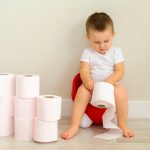
Diverticular disease – diverticulitis and diverticulosis
What are diverticulosis, diverticular disease and diverticulitis?
Diverticulosis, diverticular disease and diverticulitis are all part of the same condition that affects the large bowel.
The following table shows what the different terms mean:
| Diverticulosis | Diverticulosis is a common condition where small pouches or pockets form in the wall of the large bowel (large intestine). The pockets are called diverticula. |
| Diverticular disease | Diverticular disease is when diverticulosis causes symptoms. |
| Diverticulitis | Diverticulitis is inflammation or infection of a diverticulum (pouch). |
Diverticulosis becomes more common with age. It affects one in 10 people aged over 45 years, and about 66% of people over 70 years of age.
What are the symptoms?
Diverticulosis
Most people with diverticulosis do not have any discomfort or symptoms.
Diverticular disease
Symptoms of diverticular disease can include:
- mild cramps, or lower abdominal (tummy) pain that comes and goes
- irregular bowel habits — alternating episodes of constipation and diarrhoea
Sometimes diverticular disease causes blood in your stool (poo). This is from diverticular (pouch) bleeding.
Always see your doctor if you have any bleeding from your bowel or back passage.
Diverticulitis
The most common symptom of diverticulitis is pain on the lower left-hand side of the abdomen. Other symptoms of diverticulitis may include:
- fever
- nausea or vomiting
- a change in bowel habits, such as constipation or diarrhoea
These symptoms may be mild to severe.
What causes diverticulosis and diverticulitis?
Diverticulosis is linked to a low-fibre diet. When you have a low-fibre diet and constipation, you must strain to pass stools (do a poo). The pressure from straining can cause weak spots in your bowel to bulge out. These form pouches or pockets called diverticula.
Diverticulitis is when a diverticulum (pouch) becomes inflamed or infected. This can be caused by bacteria being trapped inside one of the bowel pockets.
When should I see my doctor?
See your doctor if you have:
- cramps or lower abdominal (tummy) pain
- irregular bowel habits — alternating episodes of constipation and diarrhoea
- blood in your stool (poo)
See your doctor immediately if you have:
- severe abdominal pain
- a fever
- start vomiting
- feel very unwell
- blood in your poo
How are these conditions diagnosed?
Diverticulosis and diverticular disease
Diverticulosis is usually diagnosed during bowel cancer screening or screening for gut problems.
A colonoscopy is a type of test that can detect diverticulosis. Your doctor may recommend you have a colonoscopy after an episode of diverticulitis or if you have symptoms of diverticular disease.
Diverticulitis
To diagnose diverticulitis, your doctor will talk to you about your symptoms and examine you.
Your doctor may recommend tests to confirm your diagnosis. These may include:
- blood tests
- a CT scan of your abdomen
How is diverticular disease treated?
Diverticular disease
Your doctor may recommend a high-fibre diet to reduce any symptoms of diverticular disease and prevent complications.
Diverticulitis
If you have mild diverticulitis, you may be treated at home. Treatment includes bowel rest. This involves having a low fibre or a fluid-only diet. Sometimes your doctor may prescribe antibiotics. You can also take mild pain-relief medicines if needed.
If you have severe diverticulitis, you may need to be admitted into hospital. Treatment includes antibiotics and fluids. These may be given through a drip into your vein. You may also need strong pain relievers. People who do not improve with treatment or who develop complications may require surgery.
Can diverticular disease be prevented?
A high-fibre diet helps to prevent constipation and may help prevent more diverticula (pouches) from forming. It can also help ease the symptoms of diverticular disease.
Exercising regularly and drinking enough water (up to 8 cups a day) are also recommended.
Complications of diverticular disease
Complications of diverticular disease and diverticulitis can include:
- bleeding from your bowel
- a tear in the wall of your bowel (bowel perforation)
- a collection of pus (abscess)
- bowel blockage (obstruction) due to scarring
- an abnormal connection (fistula) forming between the bowel pouches and other organs in your abdomen (such as your bladder)
- sepsis
These complications need urgent treatment.



